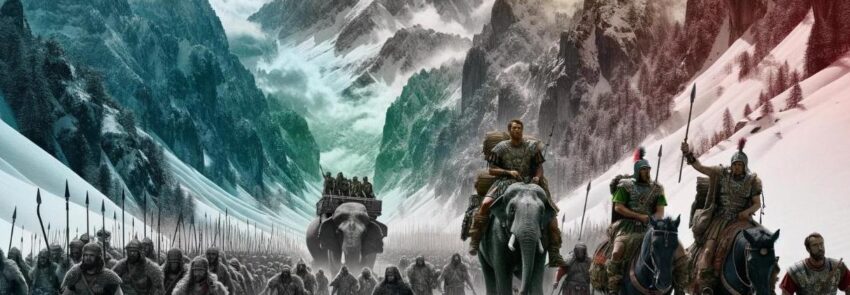Scipio Africanus and the War’s Conclusion
The Second Punic War, one of the most significant conflicts of the ancient world, saw its conclusion largely due to the strategic brilliance and tenacity of the Roman general Scipio Africanus. Born Publius Cornelius Scipio, he earned the moniker ‘Africanus’ for his decisive campaigns in North Africa that ultimately brought an end to Hannibal’s ambitions. The war had raged for over a decade, with Rome and Carthage locked in a brutal struggle for supremacy. After enduring devastating losses at the hands of Hannibal in Italy, Rome shifted its strategy under the leadership of Scipio Africanus. Scipio first demonstrated his military acumen at the Battle of Ilipa in 206 BCE. Near present-day Seville in Spain, he faced a formidable Carthaginian force. Employing innovative tactics and a deep understanding of his enemy’s strategies, Scipio achieved a decisive victory. This triumph secured Spain for Rome, cutting off Carthage’s critical supply lines and weakening their foothold in the western Mediterranean.
Following this, Scipio’s bold strategy led him to North Africa, where he aimed to strike at the heart of Carthage. In 203 BCE, he confronted the Carthaginian forces at the Battle of the Great Plains, near modern-day Tunisia. This victory forced Hannibal to abandon his long campaign in Italy and return to Africa to defend his homeland. The decisive encounter came in 202 BCE at the Battle of Zama, near modern-day Tunisia. Scipio and Hannibal, two of history’s greatest military minds, faced off in a final showdown. Scipio’s superior tactics, including his effective use of cavalry and the ability to counter Hannibal’s war elephants, led to a resounding Roman victory. The defeat at Zama ended Carthage’s ability to wage war and marked the conclusion of the Second Punic War. Carthage was forced to sue for peace, agreeing to severe terms that stripped it of its military power and territorial holdings. Scipio Africanus returned to Rome as a celebrated hero, securing his place in history as one of Rome’s greatest generals.
The end of the Second Punic War marked the beginning of Rome’s dominance in the Mediterranean, setting the stage for its transformation into a formidable empire. The conflict showcased the brilliance of military strategy, the resilience of Rome, and the eventual downfall of one of its greatest adversaries. Scipio’s ability to adapt and overcome his enemy’s strategies, his understanding of logistics, and his charismatic leadership were crucial in Rome’s victory. His efforts not only brought an end to the war but also laid the groundwork for Rome’s expansion and long-lasting influence over the Mediterranean world. The war’s conclusion demonstrated the importance of adaptable strategies and the critical role of leadership in achieving military success. Scipio Africanus’s legacy endured, influencing Roman military tactics for generations and cementing his reputation as one of history’s foremost military strategists. The Second Punic War remains a testament to the power of strategic innovation and the enduring impact of exceptional leadership on the course of history.
 |
 |
 |


